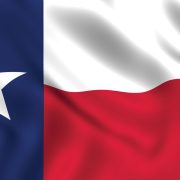The Differences Between a Personal Loan and a Business Loan
Personal loans and business loans are distinct financial products designed for different purposes, and they have several key differences. Here are the main distinctions between a personal loan and a business loan:
- Purpose:
- Personal Loan: Personal loans are intended for individual use. Borrowers typically use personal loans for various personal expenses, such as medical bills, home improvements, debt consolidation, or other personal needs.
- Business Loan: Business loans are specifically designed to support business-related expenses. This can include funding for business expansion, equipment purchase, working capital, or other operational needs.
- Borrower Eligibility:
- Personal Loan: Individuals apply for personal loans based on their personal creditworthiness and financial history. Lenders assess factors such as credit score, income, and debt-to-income ratio.
- Business Loan: Business loans are granted based on the creditworthiness and financial stability of the business. Lenders may evaluate the business’s credit history, revenue, profitability, and other business-related factors.
- Collateral:
- Personal Loan: Personal loans are often unsecured, meaning they do not require collateral. Approval is primarily based on the borrower’s creditworthiness.
- Business Loan: Business loans can be either secured or unsecured. Secured loans may require collateral, such as business assets or personal assets, to secure the loan. Unsecured business loans rely more on the business’s creditworthiness.
- Loan Terms:
- Personal Loan: Personal loans typically have shorter loan terms, ranging from one to seven years. The repayment period is generally determined by the lender and the borrower’s preferences.
- Business Loan: Business loans can have varying loan terms depending on the type of loan and the purpose. Term loans for business expansion or equipment purchase may have longer repayment periods, while short-term loans for working capital may have shorter terms.
- Interest Rates:
- Personal Loan: Interest rates on personal loans are based on the borrower’s credit score and financial profile. Rates may be fixed or variable.
- Business Loan: Business loan interest rates depend on the business’s creditworthiness, industry, and the type of loan. Interest rates may also be fixed or variable.
- Tax Implications:
- Personal Loan: Interest paid on personal loans is typically not tax-deductible.
- Business Loan: In certain cases, interest paid on business loans may be tax-deductible, depending on the purpose of the loan and applicable tax laws.
- Application Process:
- Personal Loan: The application process for personal loans is focused on the individual borrower’s financial information and credit history.
- Business Loan: The application process for business loans involves providing information about the business’s financial health, including revenue, profitability, and possibly a business plan.
- Flexibility of Use:
- Personal Loan: Borrowers have flexibility in using personal loan funds for various personal needs without restrictions.
- Business Loan: Business loans are typically earmarked for specific business purposes, and lenders may inquire about the intended use of the funds.
Understanding these differences is crucial for individuals and business owners when deciding on the most suitable financing option for their needs. It’s advisable to carefully evaluate the terms, interest rates, and repayment conditions of each type of loan and seek professional advice when necessary.










